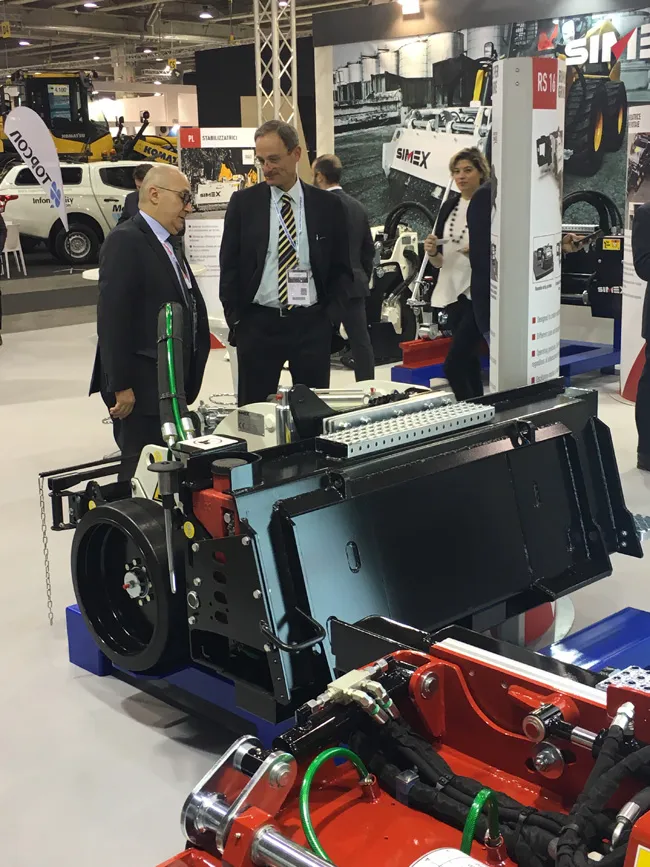Construction machinery and equipment sales worldwide are predicted to be up by 14.7 % in 2011, according to the annual business outlook survey by the Association of Equipment Manufacturers (AEM).
April 24, 2012
Read time: 2 mins
RSSConstruction machinery and equipment sales worldwide are predicted to be up by 14.7 % in 2011, according to the annual business outlook survey by the 1100 Association of Equipment Manufacturers (AEM).
The AEM says its survey results indicate sales will also continue to grow in the next three years, but at a lower rate than 2011. In 2011, machinery and equipment sales in the U.S. are expected to grow 18.6% compared to last year; Canadian sales are forecast to increase 14.7%; and sales across the rest of the world are anticipated to rise 14.7%. U.S sales are predicted to grow 10.8% in 2012, 9.9% in 2013, and 8.1% in 2014.
Canadian business overall is expected to be 9.0% higher in 2012, then increase 9.8% in 2013 and 7.3% in 2014. Meanwhile, equipment sales across the rest of the world are anticipated to rise 10.5% in 2012, 9.5% in 2013, and 8.2% in 2014. AEM, the North American-based international trade group representing the off-road equipment manufacturing industry, surveyed manufacturers of around 40 different types of machines, attachments and components, used to build and repair roads, bridges, houses, offices, schools and other infrastructure worldwide, and asked them to rank several factors affecting future business. The state of the general economy, including consumer confidence, credit availability and steel prices, were seen as major negative factors influencing future sales. A key positive factor cited was the consistent strong demand for construction equipment exports. "In 2011, construction equipment manufacturing kept improving from the depths of the recession as the economy stabilised. Earlier this year it looked like the economy was truly turning around, but we still have some uncertainty, in both U.S. and international markets, and this is hampering stronger, more sustainable growth," said AEM president Dennis Slater. "Export sales have been crucial to help many manufacturers get through the recession, and they still contribute greatly to a positive balance sheet for many companies. That's why export-friendly policies such as free trade agreements are important to keep American companies in business."
The AEM says its survey results indicate sales will also continue to grow in the next three years, but at a lower rate than 2011. In 2011, machinery and equipment sales in the U.S. are expected to grow 18.6% compared to last year; Canadian sales are forecast to increase 14.7%; and sales across the rest of the world are anticipated to rise 14.7%. U.S sales are predicted to grow 10.8% in 2012, 9.9% in 2013, and 8.1% in 2014.
Canadian business overall is expected to be 9.0% higher in 2012, then increase 9.8% in 2013 and 7.3% in 2014. Meanwhile, equipment sales across the rest of the world are anticipated to rise 10.5% in 2012, 9.5% in 2013, and 8.2% in 2014. AEM, the North American-based international trade group representing the off-road equipment manufacturing industry, surveyed manufacturers of around 40 different types of machines, attachments and components, used to build and repair roads, bridges, houses, offices, schools and other infrastructure worldwide, and asked them to rank several factors affecting future business. The state of the general economy, including consumer confidence, credit availability and steel prices, were seen as major negative factors influencing future sales. A key positive factor cited was the consistent strong demand for construction equipment exports. "In 2011, construction equipment manufacturing kept improving from the depths of the recession as the economy stabilised. Earlier this year it looked like the economy was truly turning around, but we still have some uncertainty, in both U.S. and international markets, and this is hampering stronger, more sustainable growth," said AEM president Dennis Slater. "Export sales have been crucial to help many manufacturers get through the recession, and they still contribute greatly to a positive balance sheet for many companies. That's why export-friendly policies such as free trade agreements are important to keep American companies in business."







